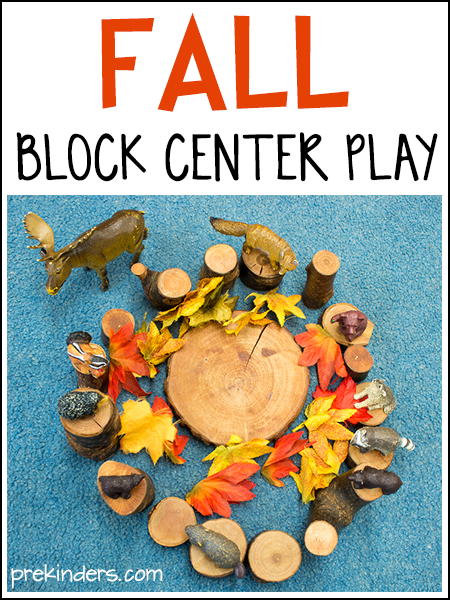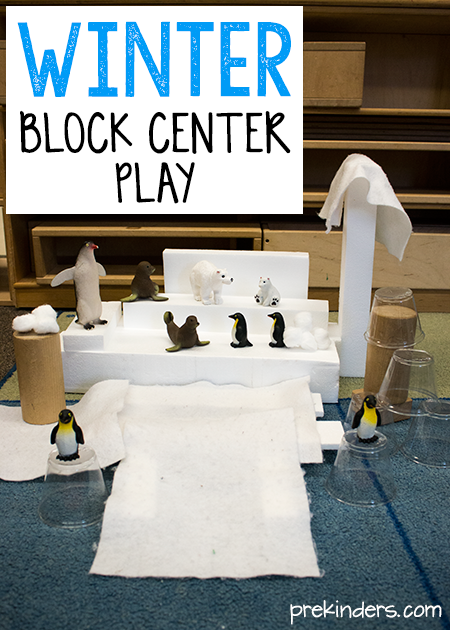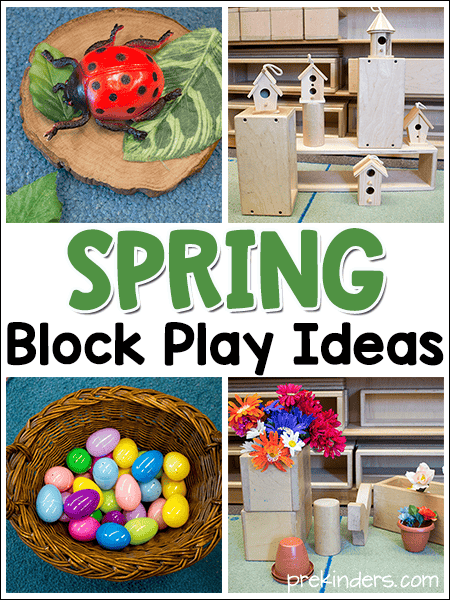The Block Center is an area of the classroom where children can engage in constructive play using various types of blocks and building materials, while adding props and block accessories to their play.
Building with blocks helps children develop concepts of math, science, engineering, and creativity. It helps children build fine and gross motor skills, hand-eye coordination, problem-solving, and cooperative play.
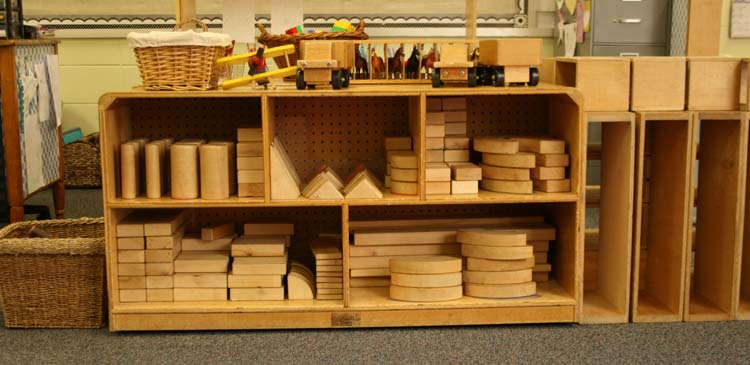
In the Block Center, you will need shelving for wooden unit blocks as well as shelving for block accessories. Choose an area for your Block Center that is a larger area, but not in a high-traffic area of the classroom. I like to use the Circle Time area for the Block Center because it’s large and we don’t use that area at Center Time.
The main building blocks should be wooden unit blocks. Foam or cardboard blocks can be used in addition to wooden unit blocks, but should not replace them.
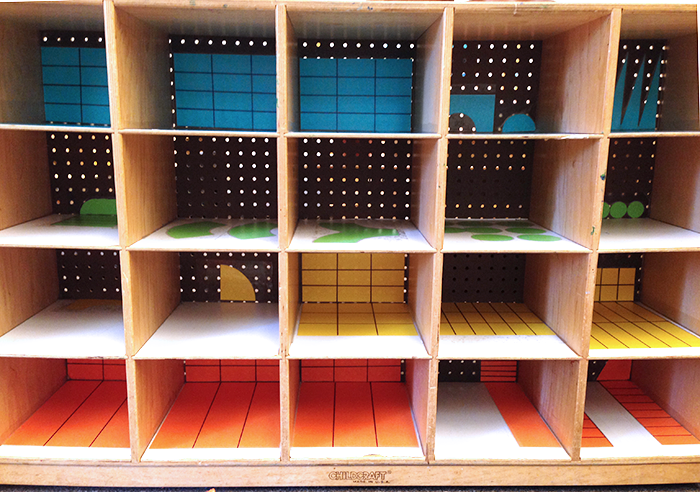
Organize wooden blocks on a shelf by the shape and size. Add a label on the shelf that is the matching shape or size to help children know how to organize the blocks.
Open-Ended Materials
The open-ended materials are located in the Block Center, but children are allowed to use them in any area of the room, for any creative use.
This shelf has a frog guiro, basket of river rocks, basket of artificial leaves, basket of artificial flowers, soft globe, basket of flags (made of felt), wooden animals, plastic animals, carpet squares, and pieces of fabric.
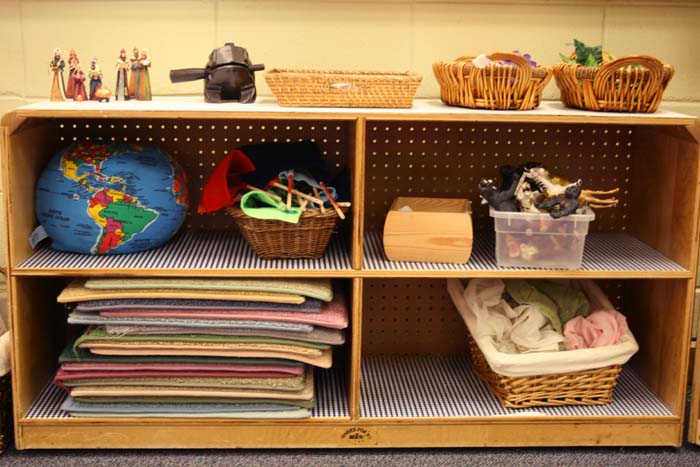
What’s in the Block Center
River Rocks, Leaves, Flowers
Children find many creative uses for the rocks, leaves, and flowers. They sometimes use them to decorate their block creations, or use them for imaginative play (for example, the rocks were recently used for pieces of chocolate in a chocolate factory).
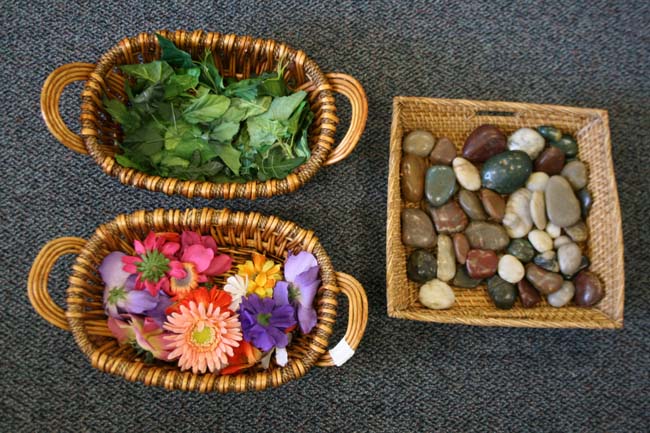
Tree Blocks
These Tree Blocks are made from real trees, and still have the bark on them and show the tree rings. These are my favorite blocks because they look so natural, and encourage more problem-solving skills than most blocks.
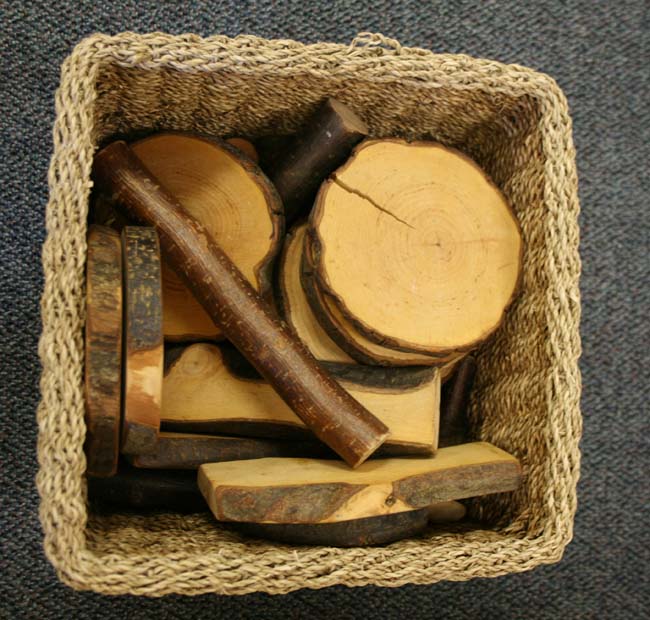
Plastic Cups
These are inexpensive plastic cups that were purchased at a dollar store. They are sturdy, so they seldom broke or cracked, but if they did, the were very inexpensive to replace. The children love to add them to their block structures.
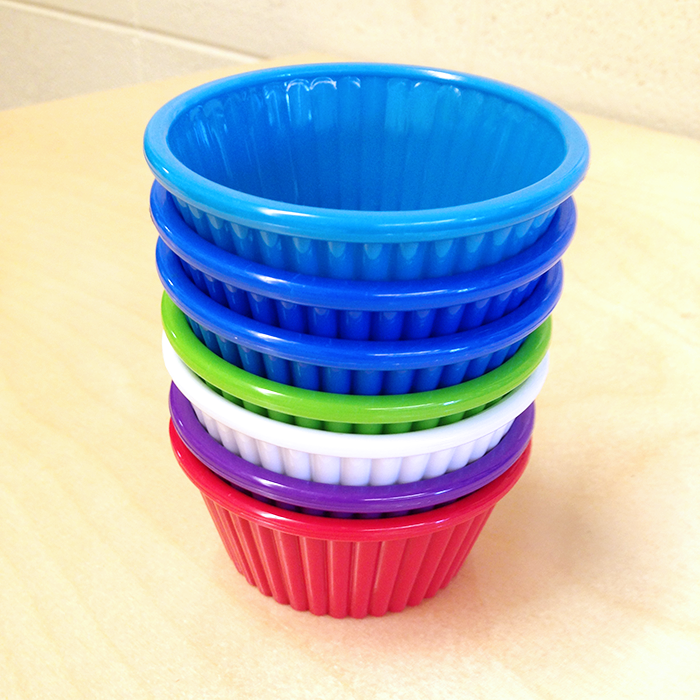
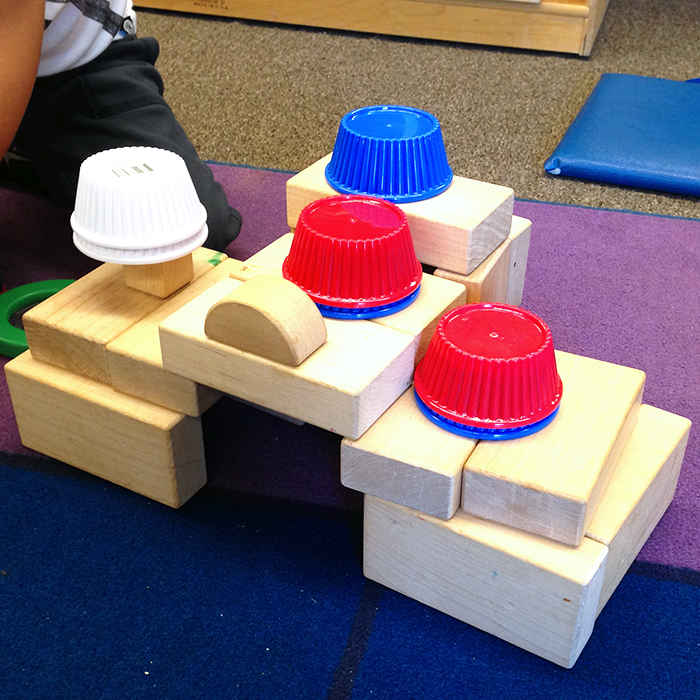
Flags
These are flags made with felt and dowel rods. The children designed them with glitter glue. They have used them in many ways: for creative movement, as decorations in the house center, as enhancements to their block creations.
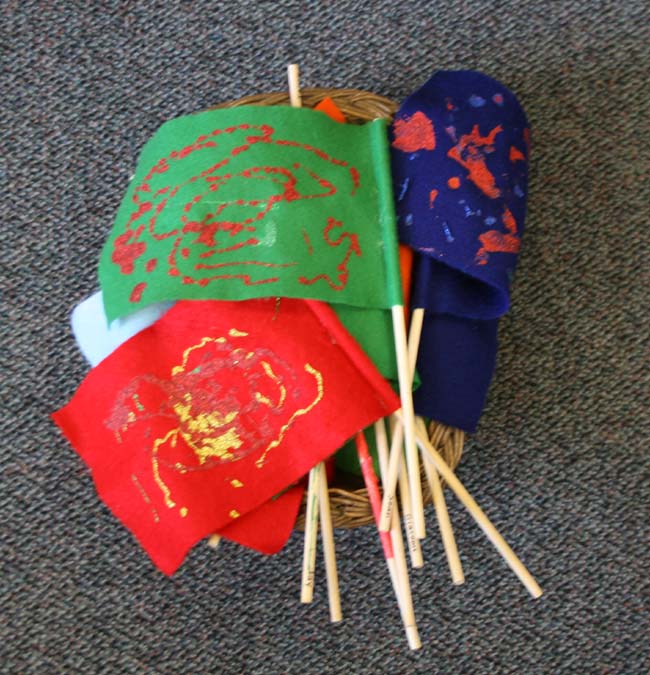
Fabric
These are fabric remnants (at least 1 yard) and curtain panels. Children use them with their block creations to make tents and houses, or as picnic blankets, as costumes, as a way to hide, and many other things.
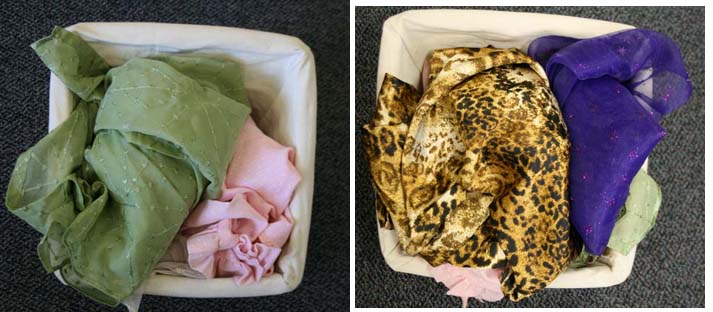
People
Add people figures that represent a diverse group of people.
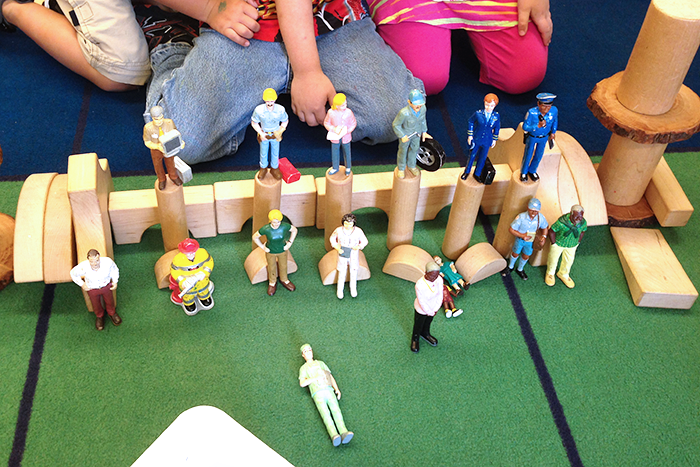
Animals
We have wooden and plastic animals: jungle animals, farm animals, dinosaurs, bugs, ocean animals. These are changed throughout the year to go along with our themes.
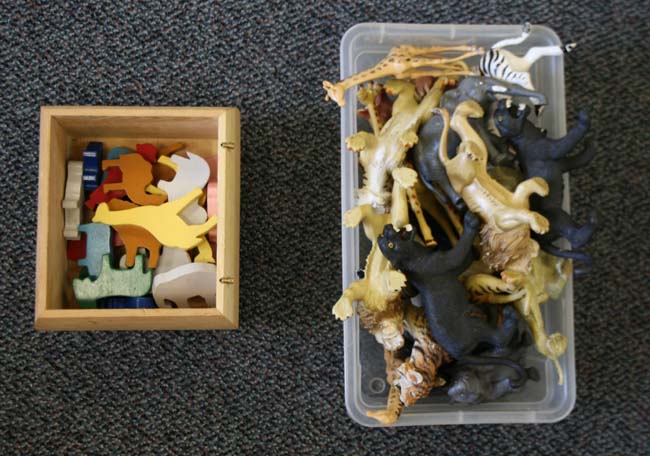
Trains, Vehicles, Road Signs
Add trains and train tracks, other vehicles, and road signs. The trains are always so popular that I have to leave them out all year in the Block Center. I also had to order more tracks and trains so that there would be enough.
The cars came from Lakeshore Learning (no affiliation) , and I really like them because as the children are playing with them, I hear lots of math talk, such as “I need 3 more people for my car.” The cars are also durable for my 22 students. The kids love them so much that at clean up time, every car must be lined up in numerical order. If a car is in the wrong place, it must be fixed.
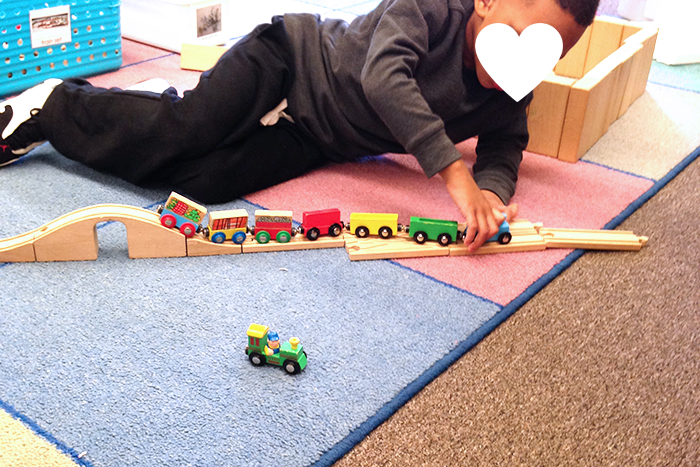
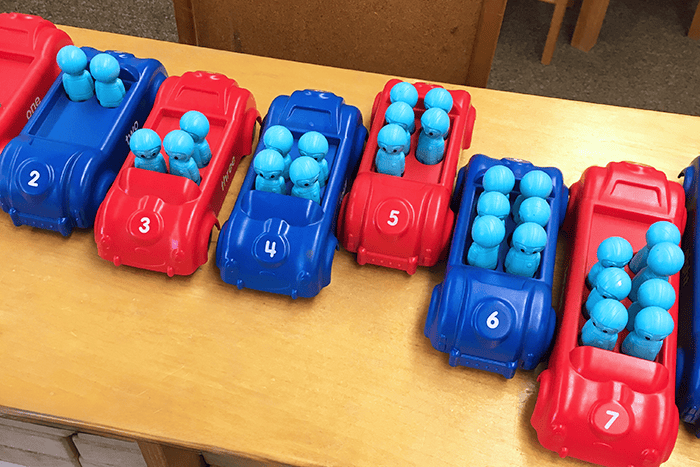
Birdhouses
We have wooden birdhouses (bought for $1 each at Dollar Tree).
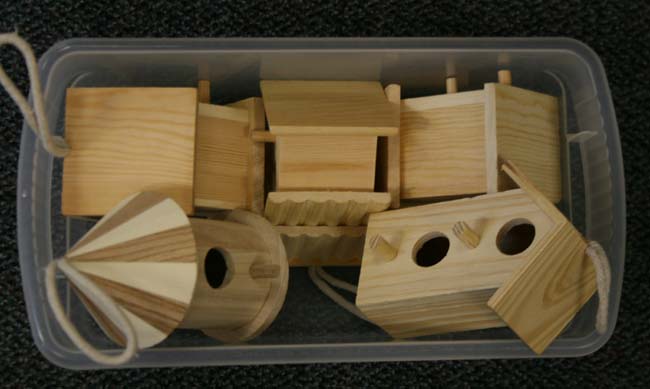
Paper
One day my students asked me if they could have construction paper in the block center. They used the paper to enhance a rocket ship they had built with the large hollow blocks. I decided to place a bucket of construction paper in the block center to see what they would create, and they came up with lots of creative ideas. The children brought tape and scissors from the art center as needed.
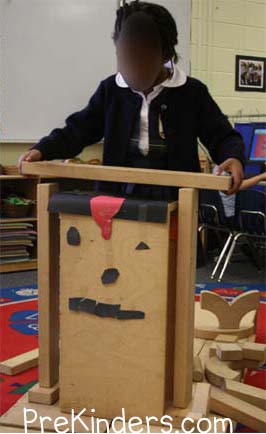
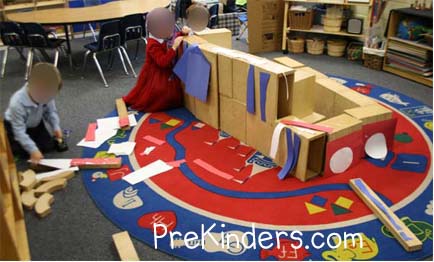
Foam Sheets
These foam sheets added color and creativity for the children and they enjoyed adding them to their block creations. This was a pack of a variety of colors that were purchased in a dollar store.
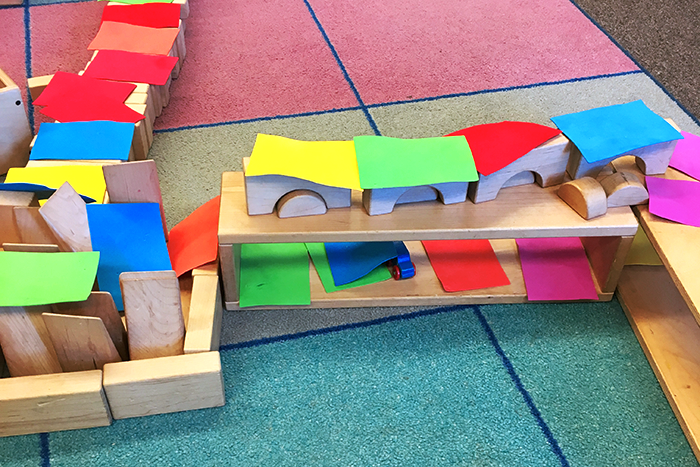
Carpet Squares
Children use the carpet squares for hop-scotch style games, paths, cushions for cars or airplanes they build with blocks, and many other things.
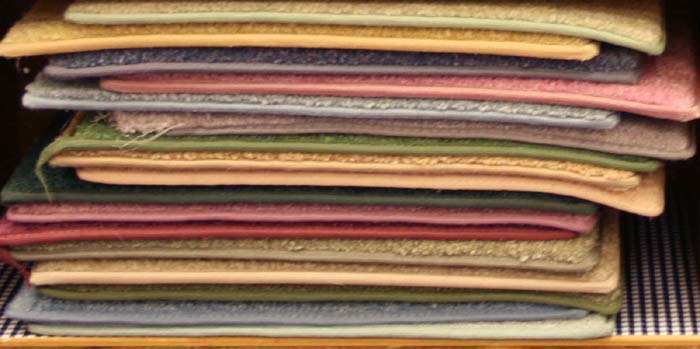
Large Blocks
Add some type of oversized blocks. You can use large cardboard blocks (store bought or make your own from boxes).
Children get so creative with the large hollow blocks– there’s no end to what they can make. They can make objects their own size and they can stand or sit on them. I’ve seen houses, stores, motorcycles, airplanes, castles, stages, and many, many things built with these.
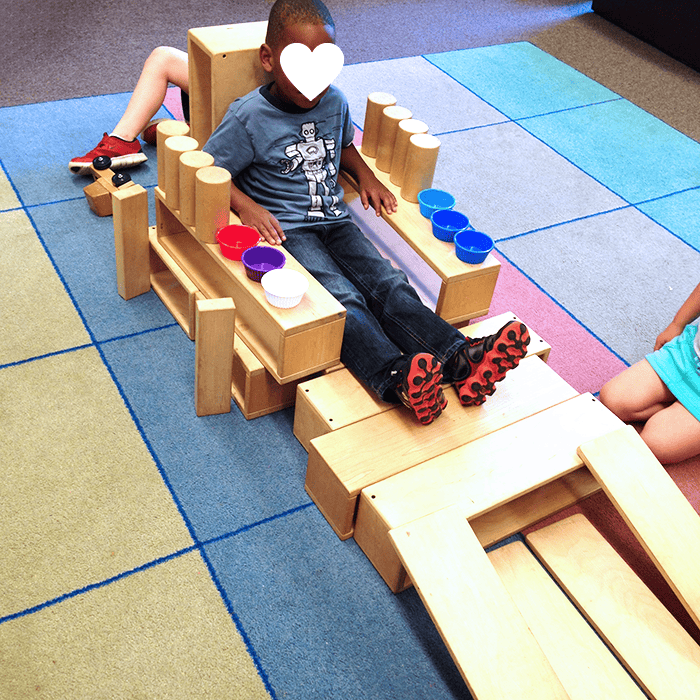
Maps and Books
Add Literacy materials with maps and books. This book is a handmade book of buildings around the world. You can also add books on construction or vehicles. Include age-appropriate books about building, architecture, and construction.
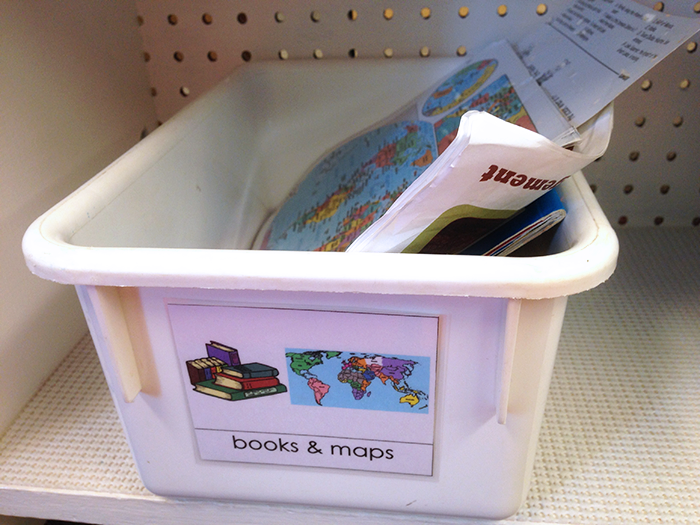
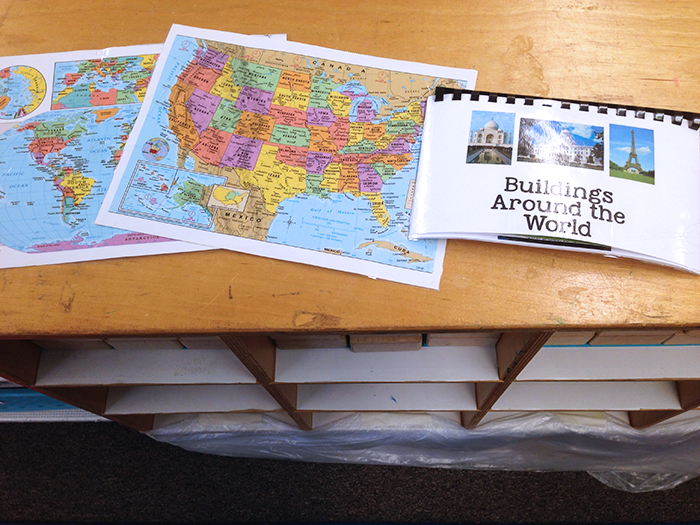
Block Idea Book
This is a book made with photos taken of the children’s constructions at the block center. Children can look through the book for ideas of things they can build, or just look through it for good memories. It has photos of current students plus photos of children from previous years who are often siblings or cousins of my current students.
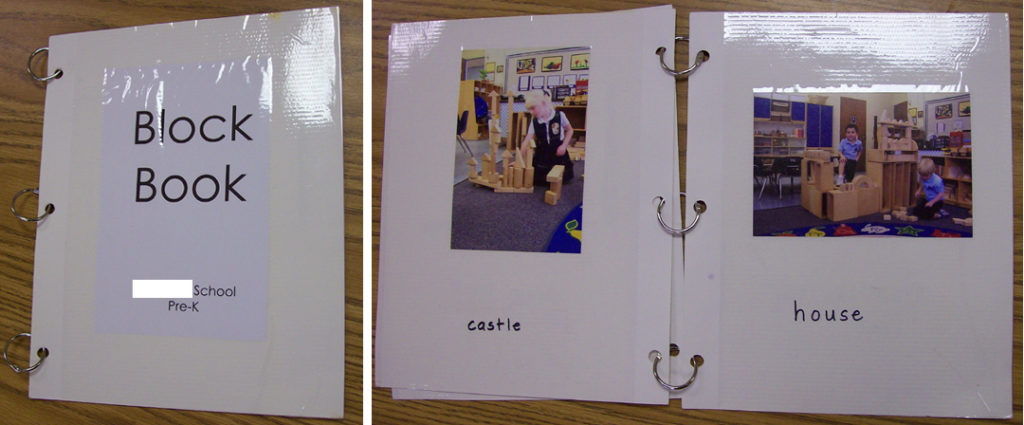
Globe
This is a soft globe of the world.
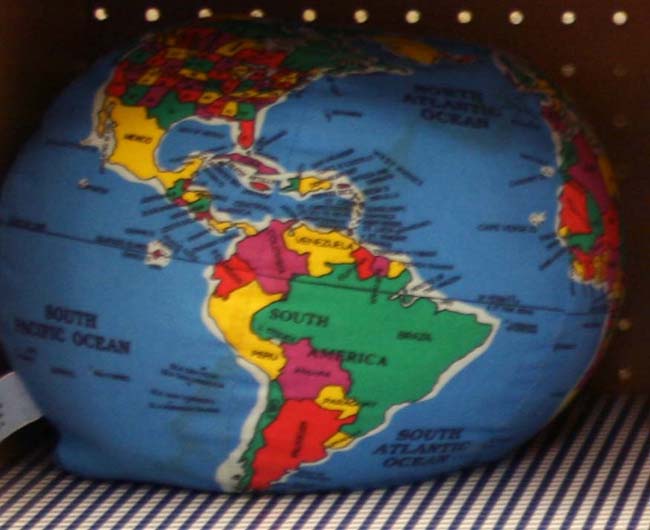
More Block Accessories & Materials:
- Items Made by the Children
- Small Wooden Cubes
- Dollhouse Furniture and People
- Astronauts and Space Shuttles
- Construction Hats, Goggles, and Tools
- Rulers, Measuring Tape, Levels, Blueprints
- PVC Pipes
- Literacy Items: Maps, Alphabet Blocks, Books about Building, Writing Materials
- Rainbow Window Blocks
- Rainbow Nesting Blocks
- Use posters and displays that show different types of buildings, structures, and architectural styles. Include pictures of famous landmarks and simple blueprints to inspire creativity.
Seasonal Materials to Add to the Block Center
Check out these links (just click the images below) to find ideas for things to add to your Block Center during the seasons!
Want to see more Pre-K Centers? See All Pre-K Centers Here
Benefits of Block Play
- Block play helps children understand mathematical concepts such as counting, shapes, sizes, and spatial relationships.
- Children learn to plan, construct, and solve problems as they build and create structures.
- Cooperative play with blocks encourages communication, sharing, and teamwork.
- Building with blocks allows children to express their creativity and imagination through open-ended play.

